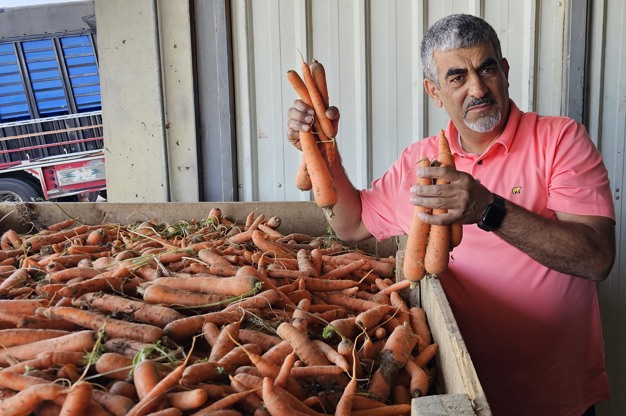
Two years ago, carrot yields in Lebanon reached 5,400 tons, a drop in the bucket compared to the Netherlands' 643,000 tons or even its neighbor, Israel's 186,000 tons. We spoke to Ahmad Mostafa Khodr of Fresh Products, one of the few carrot growers in Lebanon.
These figures come from the Food and Agriculture Organization, where Lebanon's is flagged as 'not officially confirmed'. This is immediately apparent when Ahmad tells us he harvests, processes, and markets some 32,000 tons of carrots annually. Fresh Products' history, however, confirms that carrots are a small product in Lebanon.
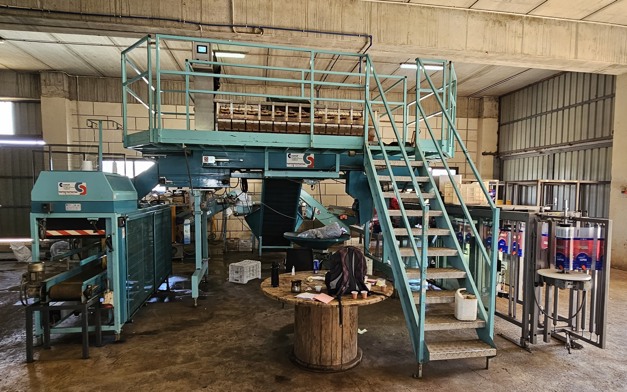 Modern packing machines for foil and poly bales
Modern packing machines for foil and poly bales
Gap in the market
Ahmad was a fruit and vegetable wholesaler in the 90s, sourcing around 50 different products directly from growers in the fertile Bekaa Valley. He saw which products grew well but also what did not work or were in short supply. There seemed to be a gap in the market for, particularly, carrots.
Those carrots, especially bushels, were cultivated on a small scale but not at all cost-effectively. Import products were much cheaper, especially from Syria, Turkey, Egypt, and Oman. So, over time, Ahmad devised a plan to circumvent that.
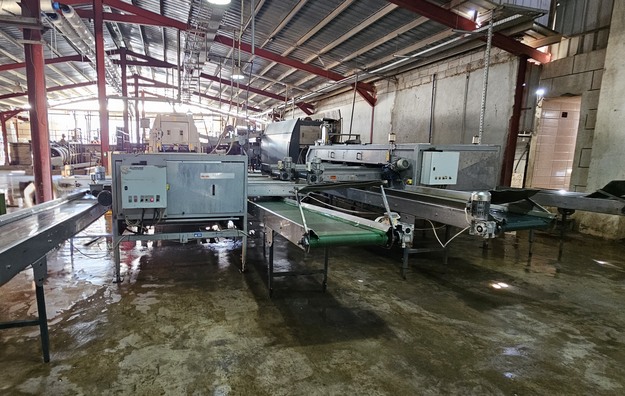
Sorting machine of Allround
In 1999, he started a two-hectare cultivation project without giving up his trading activities. Bejo Zaden and some French companies gave him the seeds, and he and several growers made improvements and modernized their cultivation methods. Several visits to international fairs were of great help. In the late 1990s, he harvested about 50-60 tons of carrots per hectare; currently, that is 70-80 tons, depending on the weather.
Crop rotation
In 2011, Ahmad founded Fresh Products, which now markets not only carrots but red, yellow, and white onions (15% of sales) and Agria and Spunta potatoes (ten percent of sales). The onion and potato cultivation serves mainly for crop rotation, as carrots remain the main product.
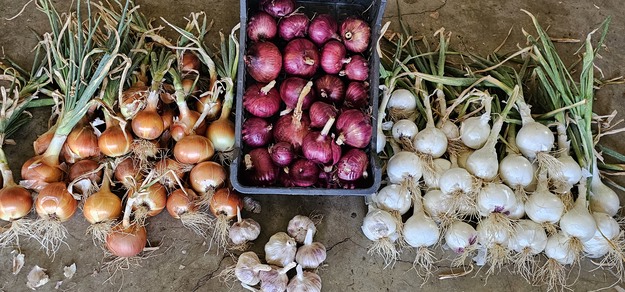
In addition to carrots, Fresh Products also supplies potatoes, yellow, red and white onions and garlic
With two locations at different altitudes - one at 600 meters in Akkar, in the north of the country, the other at 1,000 meters above sea level in Bekaa - with an acreage of 400 hectares, Fresh Products can supply clients with fresh carrots, year-round. In Akkar, production is from mid-January to June, and in Bekaa, from June to December. In the summer, a higher altitude is best, as carrots do not like heat. Yet even in Bekaa, it often gets too hot at the peak of summer.
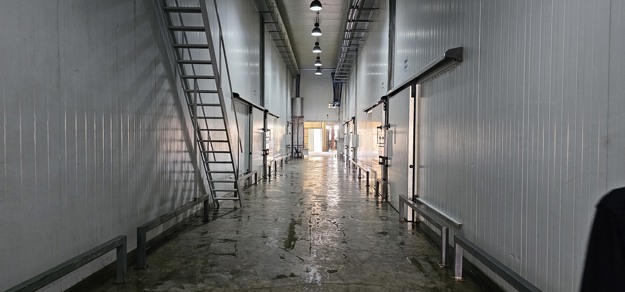
Own cold stores with storage capacity of 5000 tons
According to Ahmad, who has visited the Netherlands the most, carrot cultivation in Lebanon is not that different from that in Europe. "The seeds, machinery, cultivation techniques, and plant protection products are all the same. Perhaps the only difference is that in the Netherlands, carrots are grown in rows, while in Bekaa, they grow not only in 75cm wide rows (winter) but also on 1.5 m wide ridges (the dry summer)," says the grower.
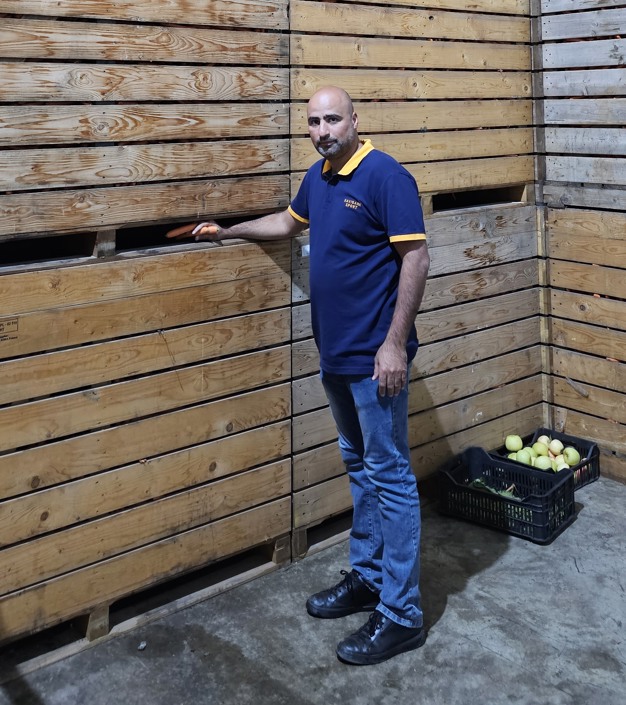
Carrots are stored in Polish cubic boxes
Export to West Africa
Fresh Products supplies carrots in 12 sizes depending on customer demand. Even those that reach as much as 40 cm in length go to processing plants that turn them into baby carrots. Organic makes up only a small share, and almost all the proceeds go to Biomass (of which there will be a report next week). There is a small yet stable local demand for organic.
There is excellent demand for conventional carrots in Fresh Products' carrots' main destination, the local market. Exports began recently, focusing on Africa's west coast, especially Ghana and Ivory Coast, in 10 kg poly bags. Sea transport to West Africa uses reefers and takes as long as 50 days, given the many stopovers in Europe and several North and West African countries.
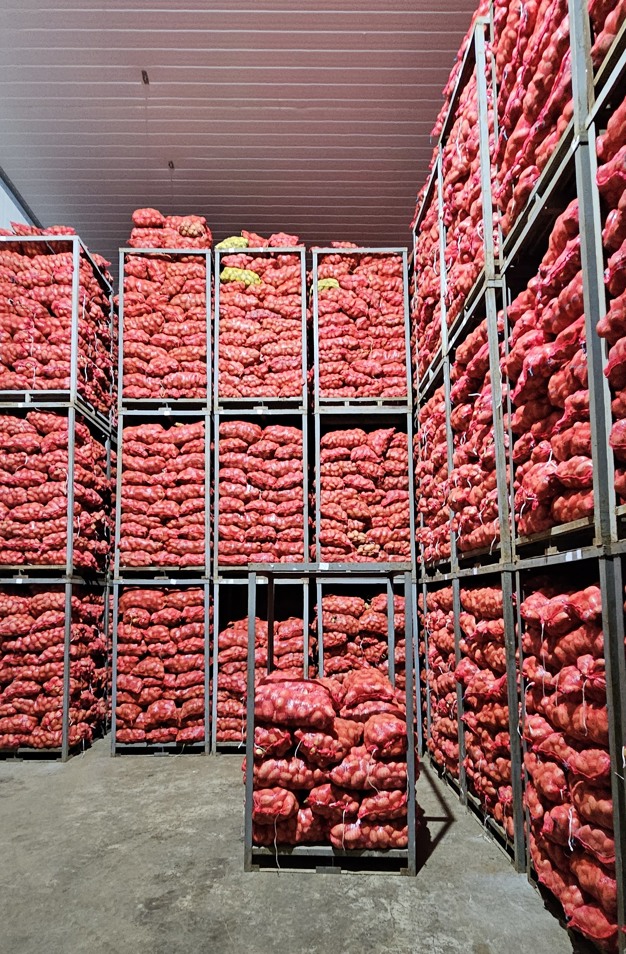
New potatoes in mesh bags
West Africa was chosen because that market prefers Dutch carrots. There was a shortage in the past two years so that region went in search of additional but similar produce. And so, it came to Lebanon. At a rate of $6,000 per container, it is, however, a costly endeavor. But, the much closer Gulf states prefer slightly larger and longer Australian and Chinese carrots. And though Fresh Products' carrots garnered European interest at last year's Fruit Attraction, the company is holding off because it cannot yet meet the desired volumes. Also, local market prices are still high enough.
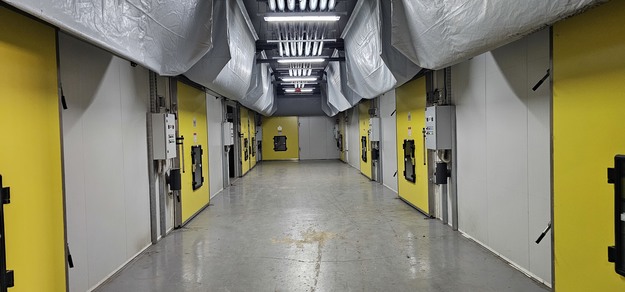
In addition to carrots, also 500 tons of CA storage of apples
Water to the sea
As for water supply -a thorny issue in many cultivation countries in recent years - there is insufficient supply in some parts of the Bekaa Valley. Some growers have to tap groundwater supplies. Yet, average annual precipitation reaches 700 mm, so Lebanon has no water stress yet, although much of the water simply flows into the sea. That means efforts, which will probably become necessary in the future, can still be made regarding water storage.
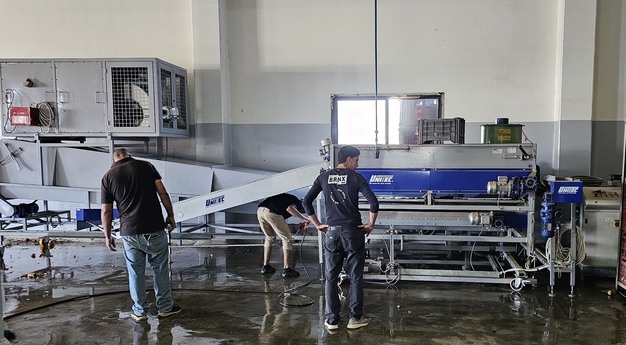
Unitec sorting machine for potatoes
In the Netherlands, the climate, pest and disease pressure, and labor and energy prices form the most significant challenges. Some of these affect growers like Ahmed, too. But, when asked about his biggest challenge, Ahmad quickly comes up with a surprising answer by European standards: Lebanon's political instability. That could well be the company's biggest obstacle to further growth. Second is the limited availability of qualified personnel, although Fresh Products' team is nicely balanced.
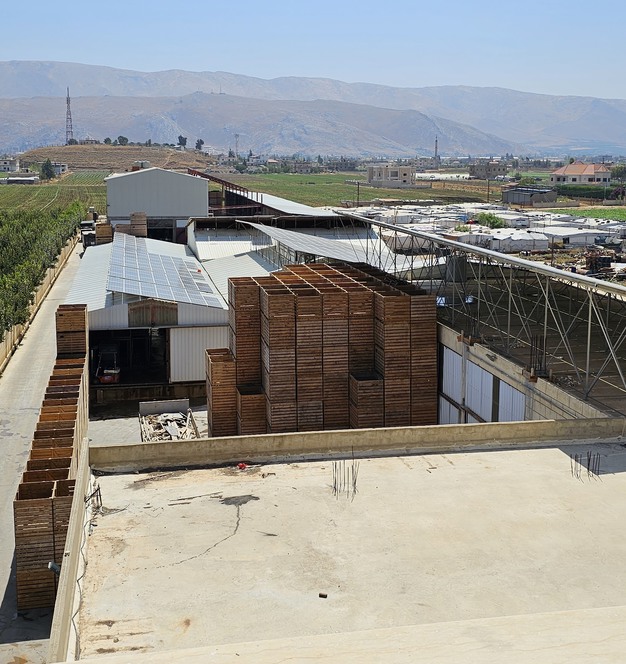
A new large cold store is being built at the back of the yard. There are also solar panels everywhere
Any short-term plans? "An optical grading line, juice factory, and subsidiaries in other countries," concludes an ambitious Ahmad. You can visit Fresh Products at Fruit Attraction at Stand 1C10 - Pavilion 1, the Lebanese pavilion.
For more information:
Ahmad Osman Khoder
Fresh Products
Zahle, Lebanon
Tel: +961 35 30 200
Email: [email protected]
Website: www.freshproducts-lb.com










